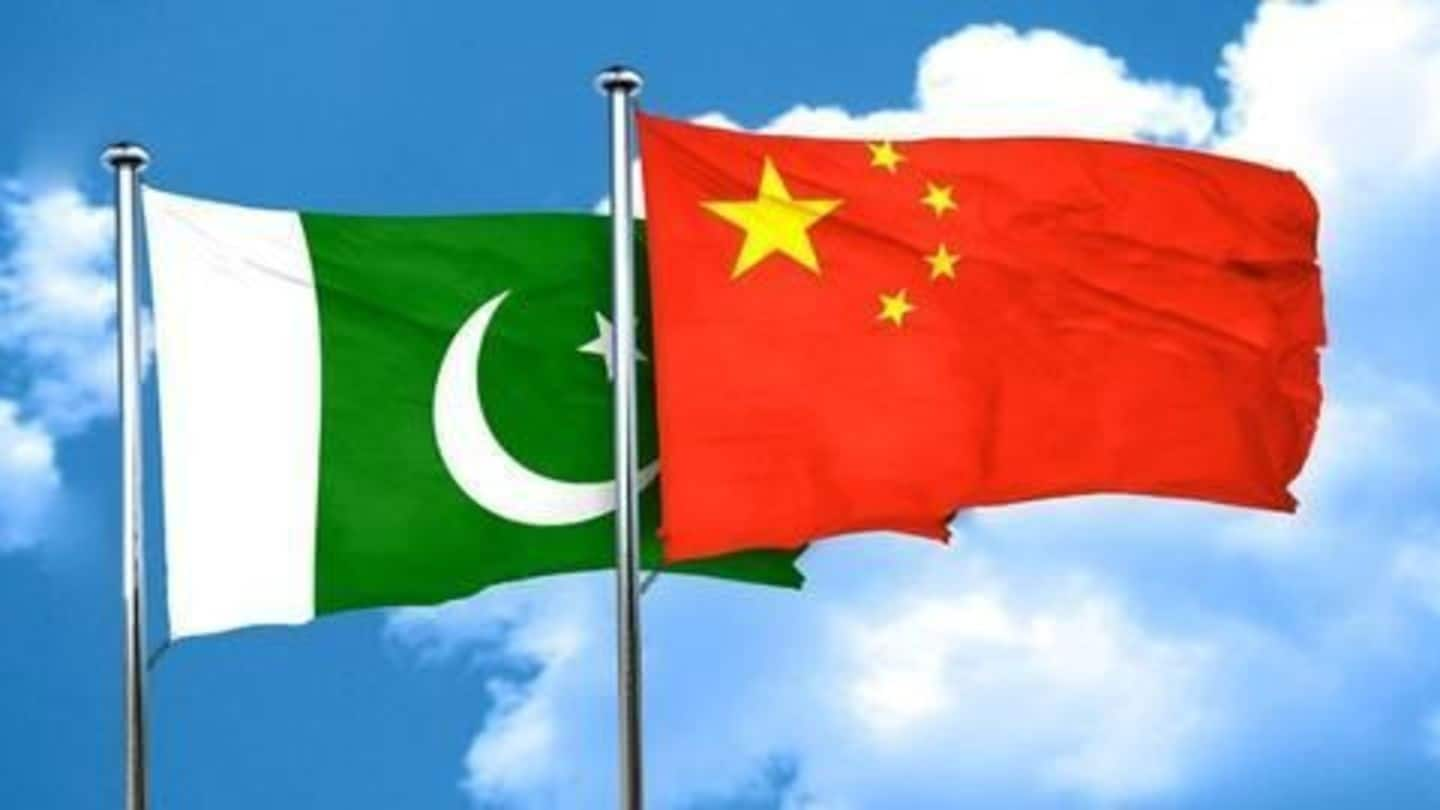
Is China making Pakistan its newest economic colony?
What's the story
Analysts have pointed out that China seems to be making Pakistan its new economic colony through the CPEC project. Details of the plans which were reported by Pakistani newspaper Dawn show how the Pakistani government is even leasing out acres of land for China's demo projects. The plans also details how China seeks to disseminate Chinese culture in Pakistan.
Background
What is the China-Pakistan Economic Corridor?
The China-Pakistan Economic Corridor is an under construction, multi-billion dollar development project which seeks to improve Sino-Pak connectivity and enhance regional trade. The project envisages the creation of energy pipelines, road-and-rail links and industrial trade corridors between China and the Pakistani port of Gwadar. It runs through PoK. Chinese Premier Li Keqiang and Nawaz Sharif announced the initiative on 22 May 2013 in Islamabad.
India
India's stance on the CPEC
The proposed project passes through disputed territory in J&K, through Gilgit Baltistan. China had always maintained that J&K was a bilateral problem; however in Dec'14, it announced the closure of the strategic Khunjerab Pass and in the process referred to Gilgit Baltistan as part of Pakistan. India has vehemently opposed the Kashgar-Gwadar CPEC route which entails energy and infrastructure projects within PoK.
Details
What are the details in the plan?
The plan envisages penetration of Pakistan's economic system by Chinese enterprises. Under the deal, the full supply chain of Pakistan's agriculture sector will be accessed by Chinese enterprises. The textiles sector is next on priority, followed by the cements and household appliances sectors. The plan finally seeks internationalization of the Renminbi (the official currency introduced by Communist People's Republic of China) through this project.
Road map
How will China achieve this?
First, Pakistan has agreed to lease thousands of acres of agricultural land to Chinese firms for seed testing and irrigation development. China will also install massive surveillance systems from Peshawar to Karachi to monitor law and order in the entire region. China will also develop Pakistan's national fibre-optic cable network, which it will use to disseminate Chinese culture inside Pakistan.
Sharif
What is Nawaz Sharif's justification?
The Pakistani government insists that the project will give a massive boost for Pakistan's ailing economy. The government added that the projects linkages to the agricultural and power sectors will be of great benefit to citizens. They added that fibre-optic connectivity would improve Pakistan's communication systems as well. PM Nawaz Sharif added that the project will also improve the security scenario inside Pakistan.
Information
Gilgit-Baltistan protests
Residents in Shia majority Gilgit-Baltistan in PoK are up in arms against the proposal. It envisages taking away several acres of their land. It also includes building of 2 mega Indus hydro-power dams in the region, which would drastically affect water flow in the region.
India
Will India take a stance?
India has vehemently opposed the projects in Gilgit Baltistan. India's total hydro-power out put in Jammu and Kashmir does not equal the output of the smaller of the two dams that China has proposed in Gilgit Baltistan. Pakistan has always opposed India's small hydro-power projects on the Indus. The Chinese dam proposition is an open Sino-Pak challenge to India's claims on the region.